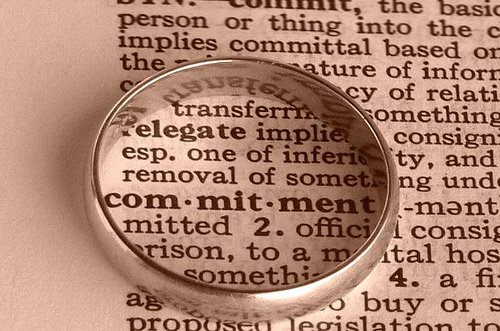
The ‘entitlement mentality’ is just as destructive to personal relationships as it is to society.
First, let’s be clear about what the entitlement mentality actually is. It’s an irrational belief that one is entitled to things, people or relationships — or aspects of relationships — to which one isn’t actually entitled.
Here are two examples I hear from a lot of people in romantic relationships, or marriages.
A man will say or think, ‘This is my wife. My wife should do what I want.’ Really? Just because you want it? No reason, proof or justification required? Just because you need something in order to feel happy? That’s how many people feel. A woman will say, ‘But you promised ‘ such-and-such.’ It’s not always true. She might have read into a statement a promise that wasn’t actually intended, or actually there. Granted, one should keep one’s word and not make promises and then back away from them. But it’s also true that promises should not be invented, or made under pressure, either.
The entitlement mentality is where feelings trump actual facts. It’s kind of a cashing in on the false but widespread idea that ‘love knows no reason.’ The extension of that supposedly romantic and idealistic attitude is, ‘Since love knows no reason, my feelings are to rule our lives together from now on.’ If you ask me, this is the most common reason why so many marital relationships go sour, despite initial promise in the early years.
People with the entitlement mentality are not simply making errors in thinking. They’re throwing thought, facts and logic aside in favor of giving their feelings precedence—without any rational justification for the feelings, nor any seen as necessary.
This is a terrible problem in many marriages and romantic relationships. People tend to think with their emotions in this area, more than any other. They move too quickly into a commitment or a love relationship before establishing (1) what they expect from the relationship and why and, (2) whether the prospective partner sees things the same way.
This second point is very, very important. Sometimes, what another expects is something you’re willing and able to deliver. But when a person acts like they’re entitled to it—merely because they expect it, or want it—that tends to be a turn-off. By ‘turn-off’ I mean a focus of resentment.
There’s an old saying about marital relationships being a ‘ball and chain.’ Today we use the terminology of prisons and involuntary psychiatric hospital stays to describe relationships: ‘commitment.’ Yikes! By what horrific turn of events or concepts does something as beautiful, spontaneous and nonobligatory as romantic love turn into imprisonment or enslavement? What does it say about the way many people approach romantic love—and human association more generally—that it so often comes to this?
Regular readers of my columns know I was moved by Ayn Rand’s writings more than any other single author I have ever read (and I have read a lot.) The central hero in her most famous novel ‘Atlas Shrugged,’ John Galt, summarized the principle required for all human relationships this way, via an oath: “I swear by my life and my love of it, that I will never live for the sake of another man, nor ask another man to live for mine.”
This is a beautiful and eloquent statement. It contains, by implication, everything required to avoid being taken in by the entitlement mentality, including in your personal relationships.
If you love someone in a rational and healthy way, you love them for whom they actually are. You want to celebrate and preserve the essence of that person. As a logical and inevitable emotional consequence of that fact, you feel—in some form—what John Galt’s statement says. You want the person to be who he or she is. It’s not “selflessness” that requires this, but actually personal honor for what you loved about the person, in the first place! Nobody is living “for” anybody; love occurs because of each person simply being who he or she is.
If the love of your life doesn’t want to do something that you would like him or her to do, there should be no temptation to place pressure or guilt on this person. This is true whether it’s something comparatively trivial, such as what to eat tonight, or something more far-reaching, such as whether to make an important purchase like a house.
From a rational perspective, you don’t want someone to love you unless they freely and willingly choose and allow themselves to do so. What else can reside beneath a connection of love or friendship other than willingness, spontaneity and authenticity? If your spouse or friend doesn’t love you because of sincere, personally held motivation—then what is to be the motive? Duty? Obligation? ‘You loved me five years ago, so you’ve got to love me now. You must love me now.’ Or: ‘If you loved me, you’d do this.’ But why? What’s even in it for you—selfishly—to have someone love you merely out of habit, obligation or duty? Don’t you want it to be real, most of all?
If John Galt’s oath is true—and I maintain that it is—then it’s likewise true that nobody is obliged to love you or care about you, just because you want it or need it. You must earn that love—not only in your own conclusions and practice, but also in the other person’s eyes. This is true not only on the first date, or in the first year, but for all the years of your romantic association (or any other kind of association) together.
Be sure to “friend” Dr. Hurd on Facebook. Search under “Michael Hurd” (Rehoboth Beach DE). Get up-to-the-minute postings, recommended articles and links, and engage in back-and-forth discussion with Dr. Hurd on topics of interest.
